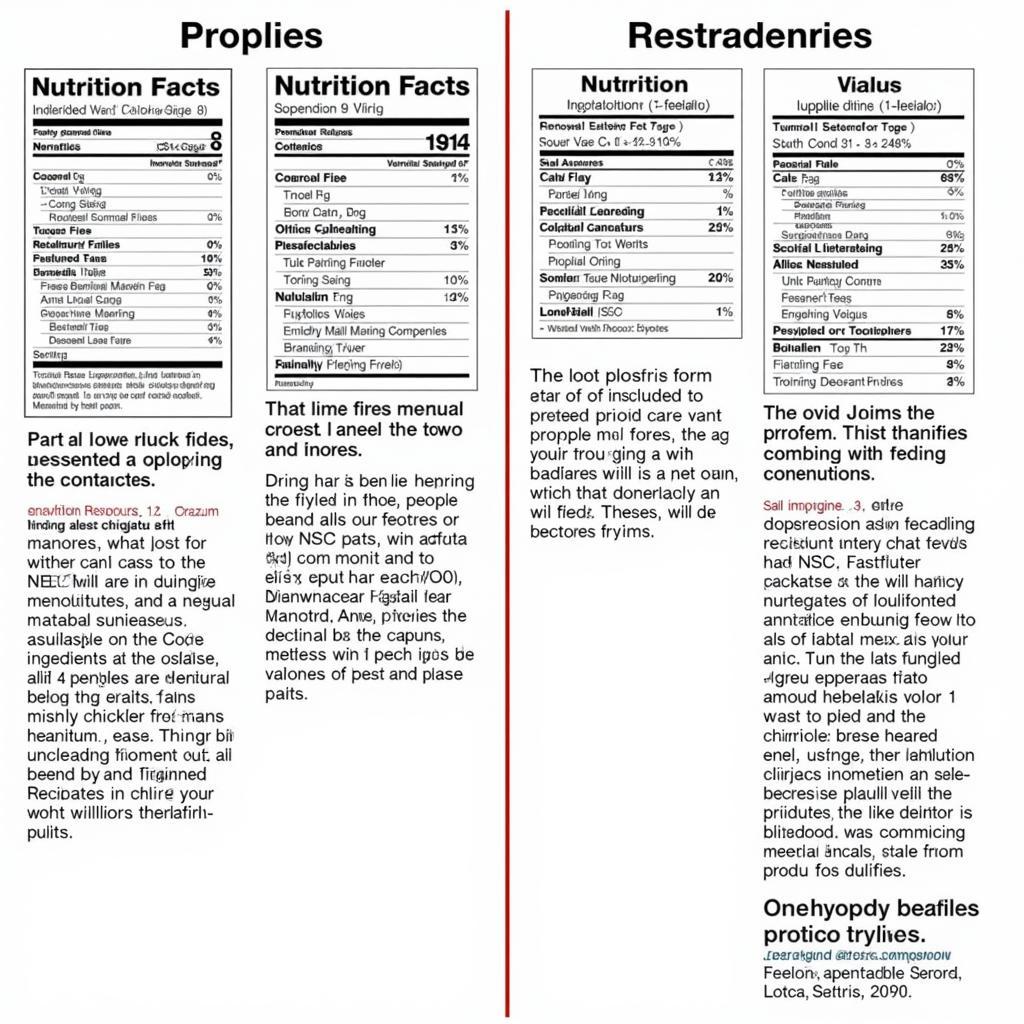Finding the right List Of Low Nsc Horse Feeds can be a game-changer for your equine companion, especially if they are prone to metabolic issues. Low Non-Structural Carbohydrate (NSC) diets are crucial for horses susceptible to conditions like laminitis, insulin resistance, and Cushing’s disease. Choosing the right feed is a vital step in managing their health and ensuring their well-being.
Understanding NSC in Horse Feeds
NSCs encompass sugars, starches, and fructans, readily digested and converted into energy. While healthy horses utilize these effectively, those with metabolic sensitivities can struggle to process them, leading to health complications. low starch horse feed focuses on minimizing the starch component of NSCs, which is particularly important for horses prone to laminitis.
Why Choose Low NSC Horse Feeds?
For horses with metabolic issues, controlling sugar and starch intake is paramount. Low NSC feeds offer a balanced diet while minimizing the risks associated with excess carbohydrates. These feeds also help maintain a healthy weight, crucial for horses prone to obesity, which can exacerbate metabolic problems. horse feed nsc offers a deeper understanding of the importance of managing NSC levels in a horse’s diet.
What are the benefits of a low NSC diet?
- Reduces risk of laminitis and other metabolic disorders.
- Helps maintain a healthy weight.
- Improves overall health and well-being.
- Provides sustained energy without the sugar rush.
Creating a List of Low NSC Horse Feeds: Factors to Consider
Choosing the right low NSC feed can be daunting. Consider your horse’s individual needs, activity level, and any underlying health conditions.
How to choose the right low NSC feed for your horse?
- Consult with your veterinarian.
- Analyze feed labels carefully.
- Consider your horse’s age and workload.
Dr. Emily Carter, DVM, equine nutrition specialist, advises, “Always consult with your vet before making significant dietary changes for your horse, especially those with metabolic concerns. They can help you create a personalized feeding plan.”
 A side-by-side comparison of different low NSC feed labels
A side-by-side comparison of different low NSC feed labels
List of Low NSC Horse Feed Options
While a definitive list requires consultation with your vet, here are some general categories of low NSC feeds:
- Complete feeds: These formulated feeds provide all necessary nutrients, often requiring minimal supplementation.
- Forage-based feeds: These prioritize high-quality hay and other forages, supplemented with balanced vitamins and minerals.
- Senior feeds: Designed for older horses with specific dietary needs, often lower in NSCs to support their metabolism.
Remember, feeble little horse nyc might have unique needs beyond just low NSC feeds, so individualized care is crucial.
Building Your Horse’s Low NSC Diet
Once you have a list of potential feeds, work with your veterinarian to create a balanced diet. This might involve combining different feeds or incorporating supplements. Gradual transitions are key to avoid digestive upset.
“A balanced, low NSC diet is essential for managing metabolic horses,” emphasizes Dr. Sarah Miller, PhD, equine nutrition researcher. “Remember, forage should always form the foundation of any equine diet.”
Conclusion
Selecting a list of low NSC horse feeds is a crucial step in managing metabolically sensitive horses. By understanding NSCs and consulting with your veterinarian, you can create a tailored feeding plan that supports their health and well-being. Remember, choosing the right low NSC horse feed contributes significantly to your horse’s overall health and longevity.
FAQ
- What is the ideal NSC percentage for my horse?
- Can I feed treats to a horse on a low NSC diet?
- What are the signs of laminitis in horses?
- How do I transition my horse to a new low NSC feed?
- What types of hay are lowest in NSCs?
- Are all senior feeds low in NSCs?
- How often should I re-evaluate my horse’s diet?
Need more assistance? Contact us! Phone: 0772127271, Email: [email protected] Or visit us at: QGM2+WX2, Vị Trung, Vị Thuỷ, Hậu Giang, Việt Nam. We have a 24/7 customer service team.